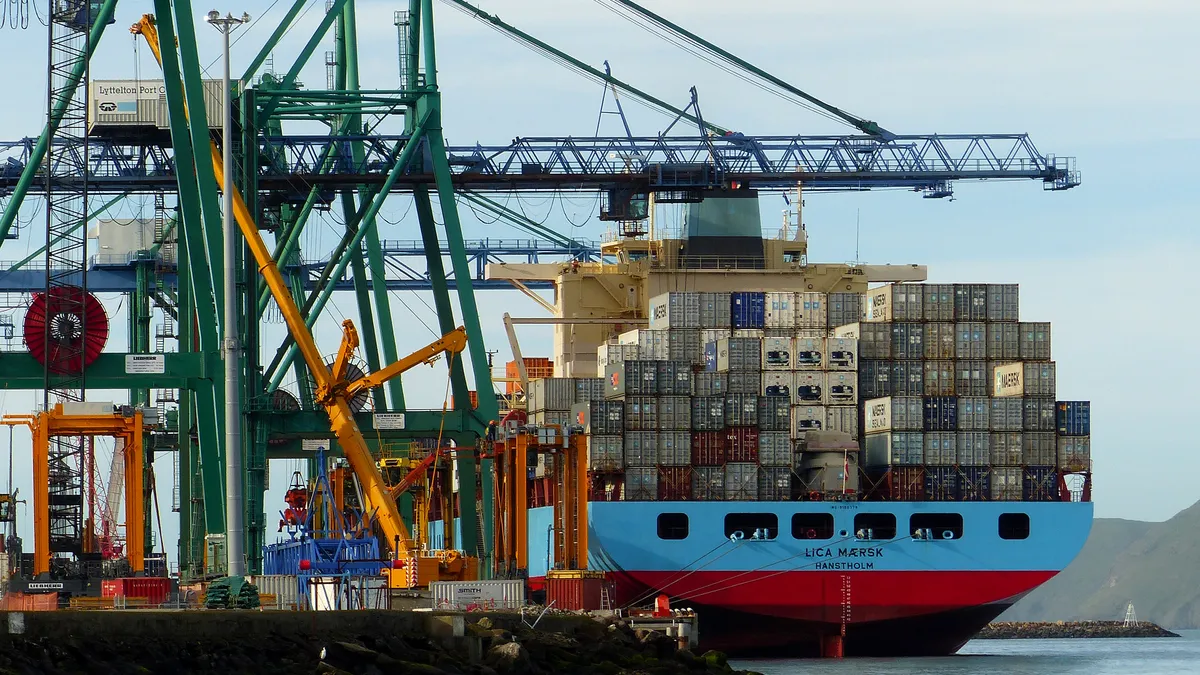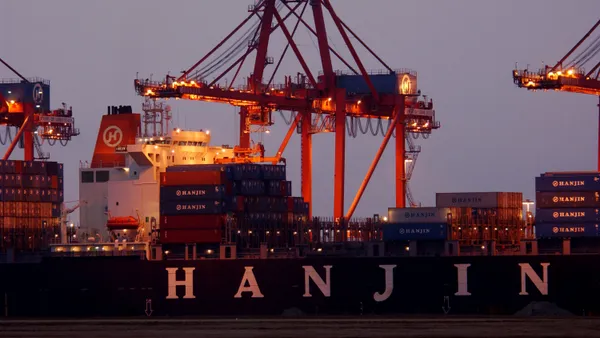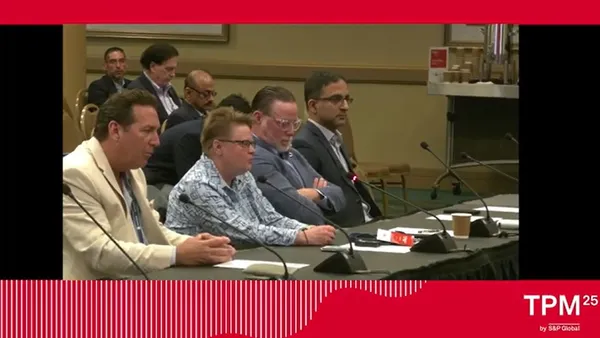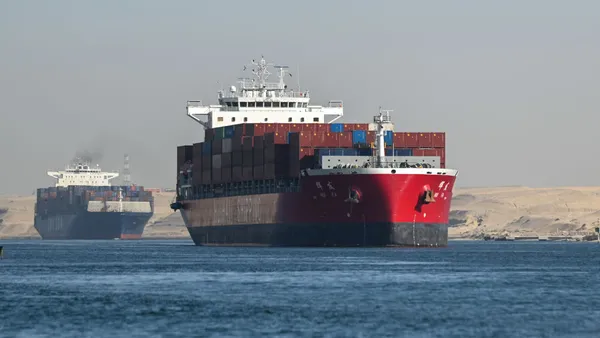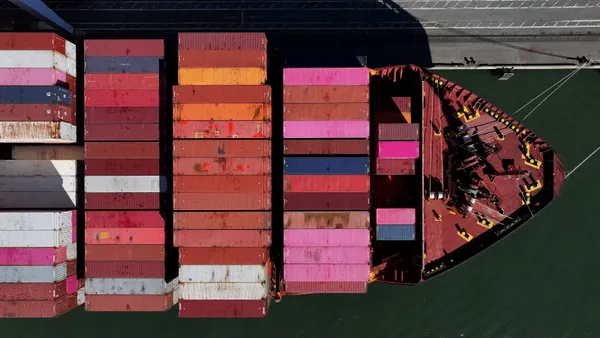Dive Brief:
- A.P. Moller-Maersk CEO Søren Skou relayed tempered expectations for ocean shipping volumes in 2020 on a Friday earnings call, though this was buoyed by better-than-expected profitability in the third quarter. "The continued weakening of global sentiment, above all in the manufacturing sector, reduces the likelihood of a growth pick-up in 2020," the company said in earnings materials. It expects a 1%-3% growth in overall container volume in 2020, though the carrier adjusted 2019 volume growth expectations down from 1%-3% to 1-2%.
- In the third quarter, global demand growth came in at 1.5% — down from 2% in Q2. Revenue for the carrier fell nearly 1% year-over-year.
- Supply chain services revenue has been negatively affected by trade uncertainty and a "lower peak season among top US retailers sourcing from China," the carrier said in a written statement.
Dive Insight:
The decline in freight demand Skou tentatively predicted on Maersk's August earnings call has now come to fruition.
While the trade war between the U.S. and China doesn't directly hit Maersk's volumes, it has triggered a decrease in business confidence around the world, Skou told the China Global Television Network in September.
"I think the real risk for our business and global trade is really the impact on the global economy," he said naming the U.S.-China trade war, uncertainty surrounding Brexit and turmoil in Iran.
Seeing all of this coming, Maersk has been focusing on profitability in 2019 and it's clear executives are happy with that call as it puts them in a better position to weather a slowing global economy. Maersk's profitability was bolstered by more business within its intermodal, warehousing and distribution segments and lower fuel costs.
Continued focus on profitability in 2020 will keep the carrier's costs as low as possible, with the major caveat that IMO2020 conversion will begin in December. Skou expressed confidence Maersk will be ready for implementation and will install scrubbers on just 10% of its total fleet. The cost of the industry-wide conversion, said Skou, is impossible to predict but as Maersk and other ocean liners have made clear, it will be passed on to customers.



